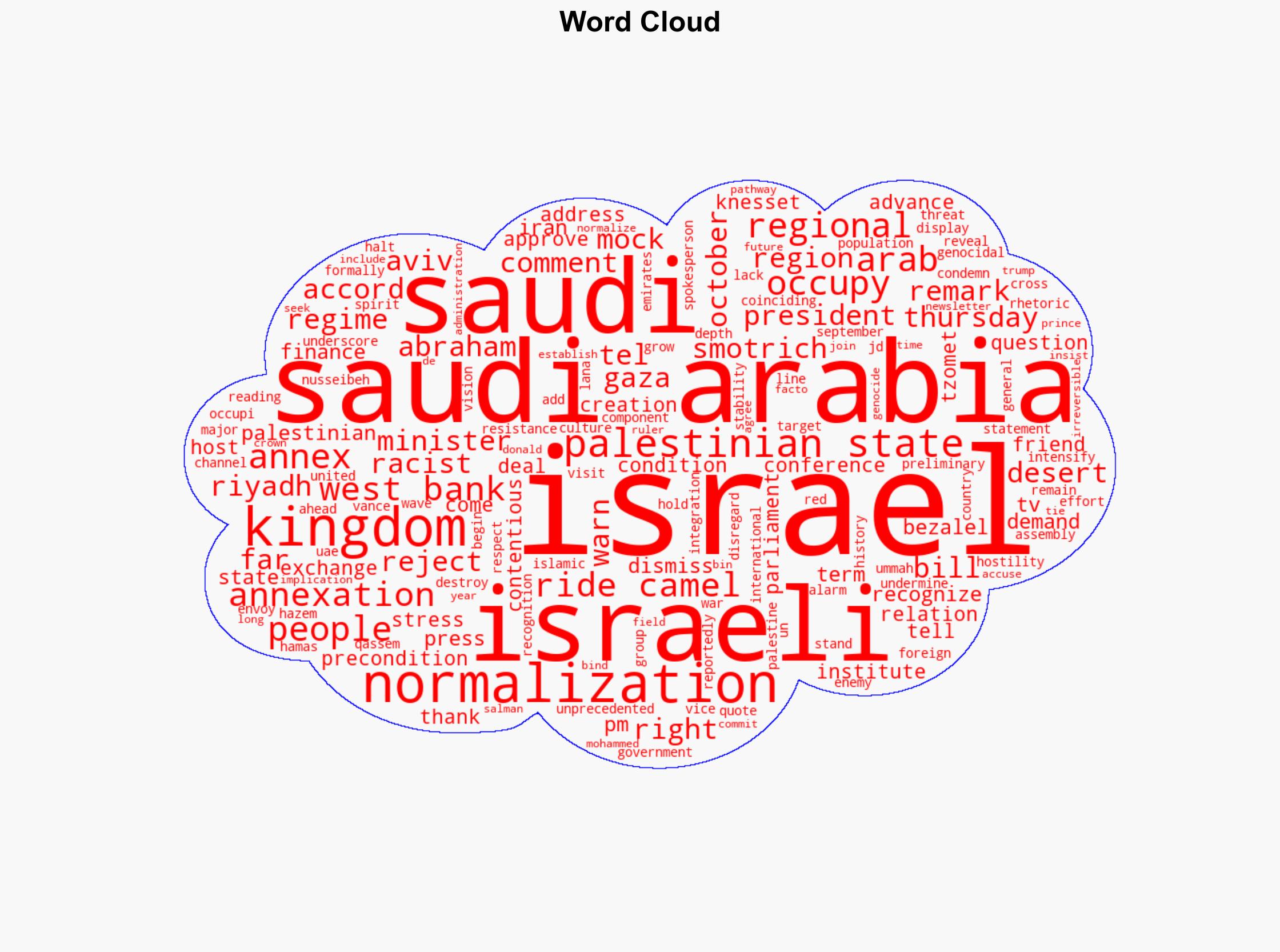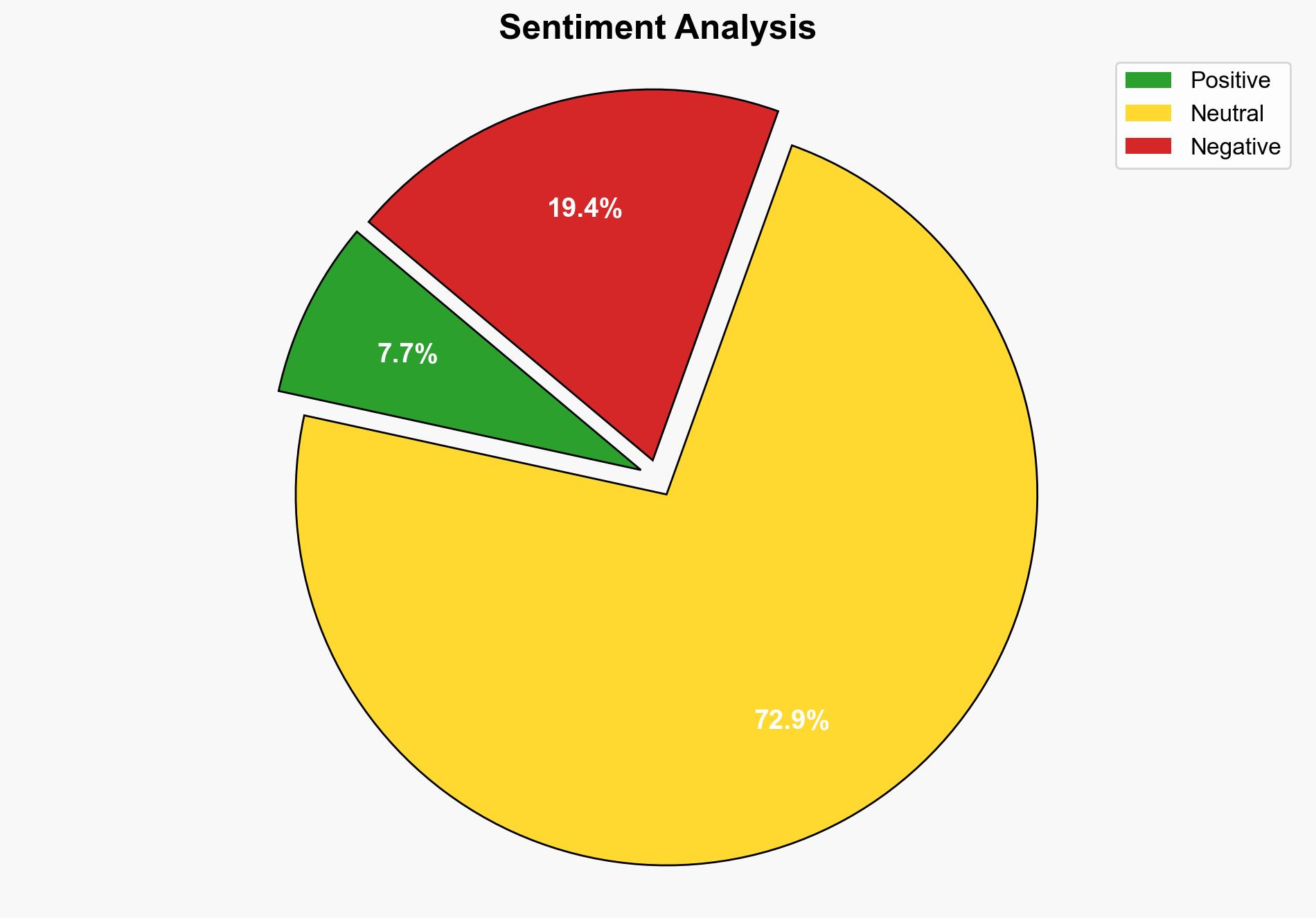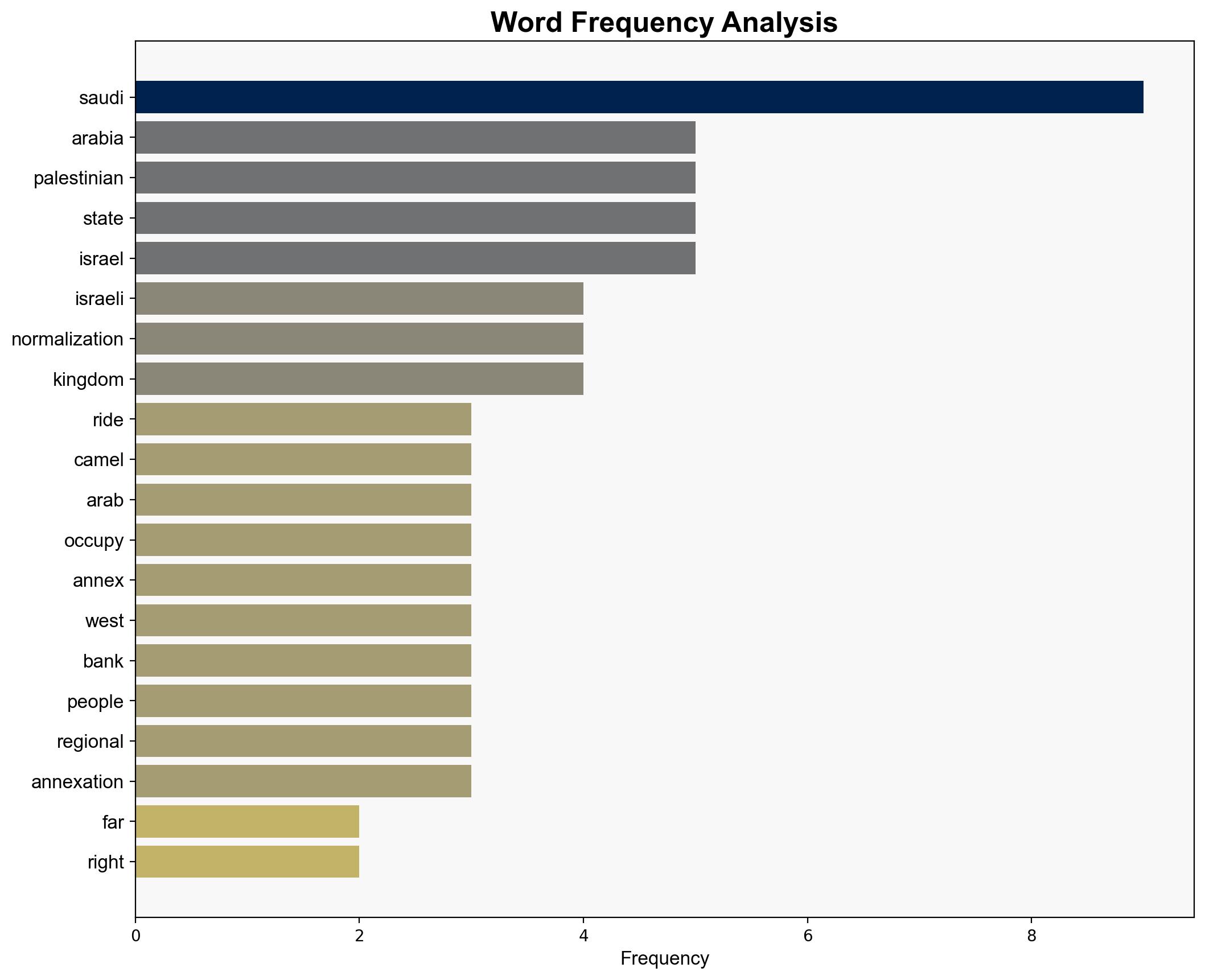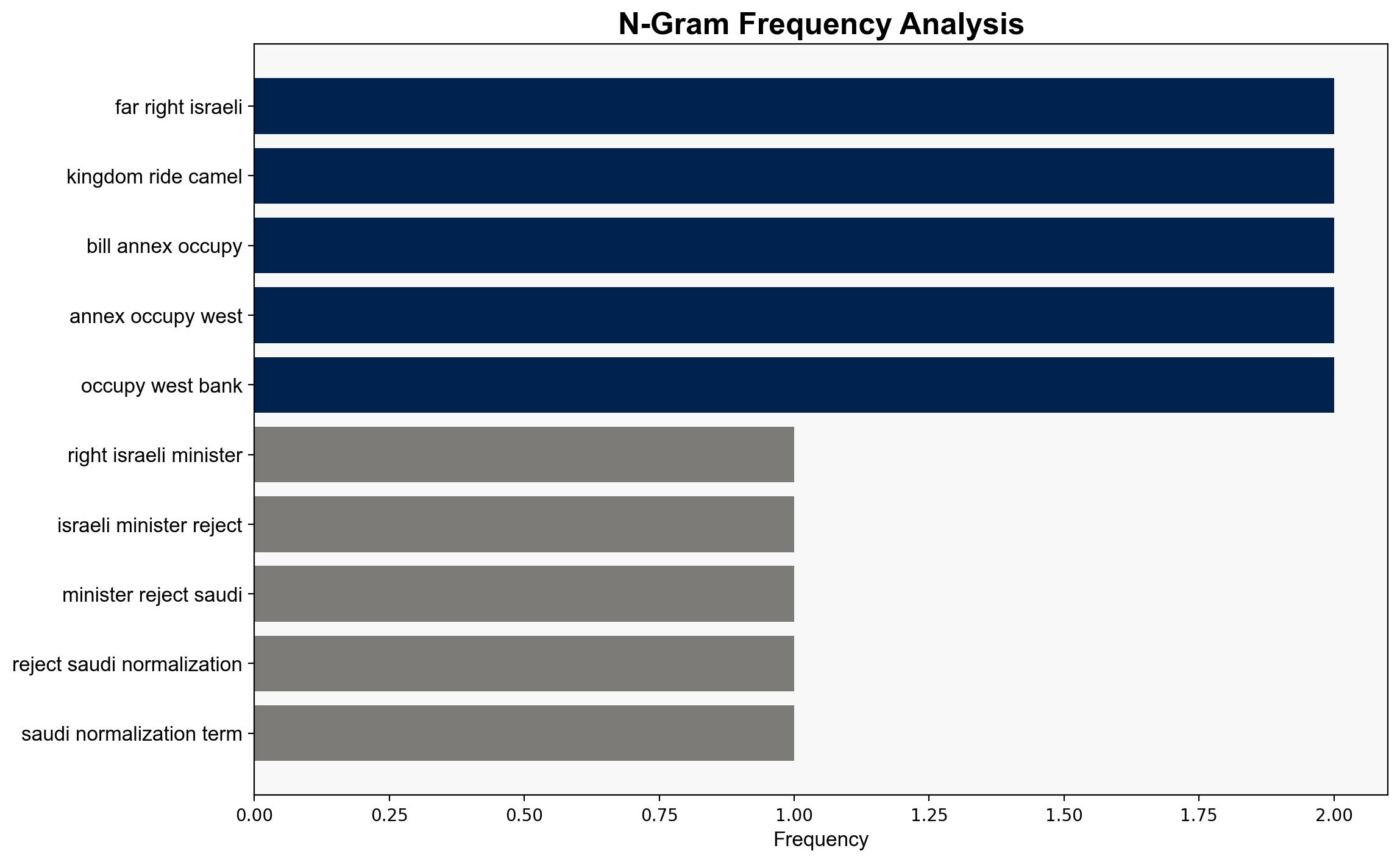Far-right Israeli minister rejects Saudi normalization terms mocks kingdom to ‘keep riding camels’ – Globalsecurity.org
Published on: 2025-10-24
Intelligence Report: Far-right Israeli minister rejects Saudi normalization terms mocks kingdom to ‘keep riding camels’ – Globalsecurity.org
1. BLUF (Bottom Line Up Front)
The rejection of Saudi normalization terms by an Israeli minister highlights significant tensions between Israel and Saudi Arabia, potentially impacting regional stability and diplomatic efforts. The most supported hypothesis is that Israel’s current political stance prioritizes territorial ambitions over diplomatic normalization, posing risks to regional integration efforts. Confidence level: Moderate. Recommended action: Monitor developments closely and engage in diplomatic dialogues to mitigate escalation.
2. Competing Hypotheses
1. **Hypothesis 1**: Israel’s rejection of Saudi normalization terms is a strategic move to maintain territorial claims, specifically in the West Bank, while leveraging regional tensions to consolidate internal political support.
2. **Hypothesis 2**: The rejection and derogatory remarks are primarily rhetorical, aimed at domestic audiences, with Israel still open to negotiation under different terms, possibly using this stance as a bargaining chip.
Using ACH 2.0, Hypothesis 1 is better supported due to recent legislative actions in the Israeli parliament advancing annexation and historical patterns of prioritizing territorial claims over diplomatic normalization.
3. Key Assumptions and Red Flags
– **Assumptions**: It is assumed that Israel’s current government prioritizes territorial expansion over normalization. Another assumption is that Saudi Arabia’s conditions are non-negotiable.
– **Red Flags**: The derogatory remarks could be a deliberate provocation, indicating a potential miscalculation or underestimation of regional reactions. The absence of direct Saudi responses in the intelligence could indicate strategic silence or internal deliberation.
4. Implications and Strategic Risks
– **Geopolitical**: Increased tensions could destabilize the region, affecting alliances and economic ties.
– **Economic**: Potential impacts on trade and investment, particularly if regional instability escalates.
– **Psychological**: Heightened nationalist sentiments could lead to increased domestic support for hardline policies in Israel.
– **Escalation Scenarios**: Possible retaliatory measures by Saudi Arabia or increased support for Palestinian groups could exacerbate conflicts.
5. Recommendations and Outlook
- Engage in back-channel diplomacy to explore alternative terms for normalization that address both parties’ core concerns.
- Monitor regional reactions and prepare for potential escalations, including economic or cyber retaliations.
- Scenario Projections:
- Best: Diplomatic breakthroughs lead to revised normalization terms.
- Worst: Escalation into broader regional conflict.
- Most Likely: Continued diplomatic stalemate with sporadic tensions.
6. Key Individuals and Entities
– Bezalel Smotrich
– Mohammed bin Salman
– JD Vance
– Hazem Qassem
7. Thematic Tags
national security threats, geopolitical tensions, regional diplomacy, Middle East politics





